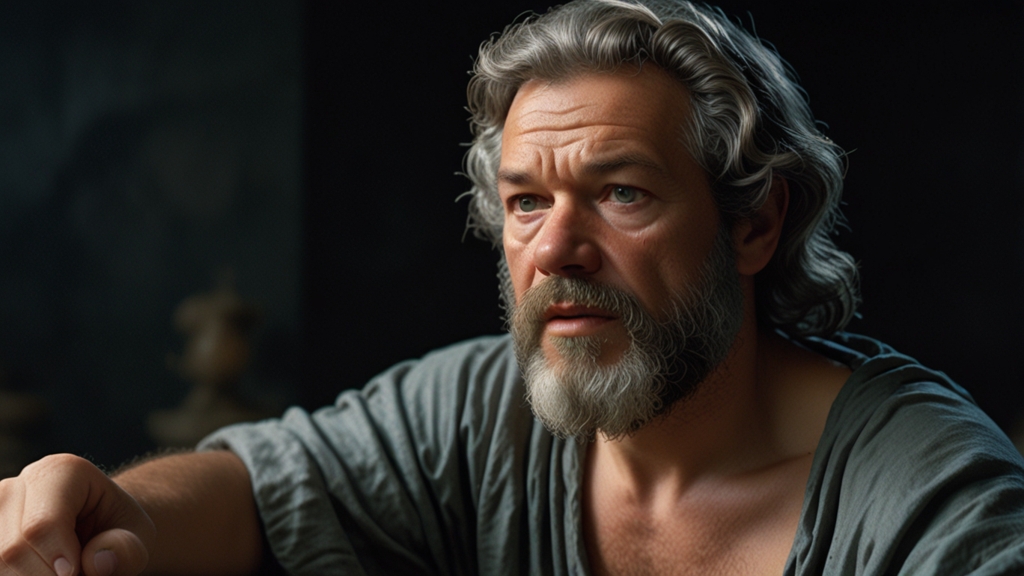The Influence of Ancient Civilizations on Contemporary Religions
Contemporary religions, diverse in doctrines and practices, are profoundly rooted in the ancient civilizations from which they have evolved. These ancient societies, through their mythologies, rituals, and spiritual philosophies, have left an indelible mark on modern faiths, guiding the moral, ethical, and cultural frameworks of millions around the globe.
Ancient Egypt: The Cradle of Eternal Life
The ancient Egyptian civilization, renowned for its monumental contributions to religion and spirituality, has significantly influenced contemporary faiths, particularly through its concepts of the afterlife and deities. The Egyptian pantheon, filled with gods and goddesses like Osiris, Isis, and Ra, shaped early theological frameworks in ways that resonate even today.
"The ancient Egyptians placed immense importance on the afterlife, which directly influenced the Christian concept of heaven and hell. The Egyptians' Book of the Dead, a guide to navigating the afterlife, parallels the moral and ethical directions found in religious texts like the Bible."
In present-day Christianity, the symbolism of resurrection and eternal life closely mirrors the stories of Osiris' death and resurrection, foundational myths that emphasized the cyclical nature of life, death, and rebirth. Furthermore, the concept of Ma'at, the divine order and balance, can be seen as a precursor to later religious laws and ethical systems.
Mesopotamia: The Birthplace of Written Tradition
Mesopotamia, often hailed as the 'Cradle of Civilization,' was a melting pot of spiritual ideologies that have trickled down into modern religious practices. The epic of Gilgamesh, one of the earliest known literary works, delves deep into themes of friendship, immortality, and divine justice, themes that are central to many contemporary religions.
"Mesopotamian religion heavily influenced the development of Abrahamic faiths. The story of the Great Flood in the Epic of Gilgamesh, for instance, bears striking similarities to the Biblical narrative of Noah's Ark."
The Zoroastrian faith, originating in ancient Persia, introduced concepts such as dualism, the eternal battle between good and evil, and the final judgment, which have also been integrated into subsequent religious doctrines like Judaism, Christianity, and Islam.
Ancient Greece: Philosophical Underpinnings
The rich mythological tapestry of ancient Greece, interwoven with stories of gods, heroes, and philosophical musings, has left a lasting legacy on contemporary spiritual thought. Greek gods such as Zeus, Hera, and Athena not only filled the ancient world with vibrant narratives but also posed existential questions about human nature and morality.
The philosophical inquiries of Socrates, Plato, and Aristotle have been instrumental in shaping religious thought, particularly in Christianity and Islam. Plato's theory of forms, which postulated that the material world is a shadow of a higher, truer reality, aligns with the Christian and Islamic perspectives of an afterlife and a higher spiritual existence.
India: The Fountainhead of Spiritual Diversity
India's ancient civilizations, including the Indus Valley and the Vedic culture, are the bedrock of Hinduism, Buddhism, and Jainism. The Vedas, ancient sacred texts, laid the groundwork for various spiritual concepts such as Dharma (duty/ethics), Karma (cause and effect), and Moksha (liberation), which continue to influence contemporary spiritual practices.
"The syncretism observed in Hinduism, with its vast array of gods, rituals, and philosophies, has provided a framework within which other religions like Buddhism and Jainism could emerge and flourish, spreading these ancient ideas far beyond Indian borders."
Buddhism, with its roots in the teachings of Siddhartha Gautama (the Buddha), incorporated and reinterpreted many Hindu ideas, spreading them across Asia. Concepts such as mindfulness, meditation, and the pursuit of enlightenment have found a significant place in modern spiritual and secular contexts.
Conclusion
The intricate tapestry of contemporary religions is woven with the threads of ancient civilizations. From the eternal life philosophies of Egypt to the dualistic struggles of Mesopotamia, the philosophical musings of Greece, and the spiritual teachings of India, ancient civilizations have profoundly shaped modern faiths. As we explore these historical roots, we gain a deeper appreciation for the enduring legacy of human spirituality and its capacity to adapt, synthesize, and thrive through the ages.










